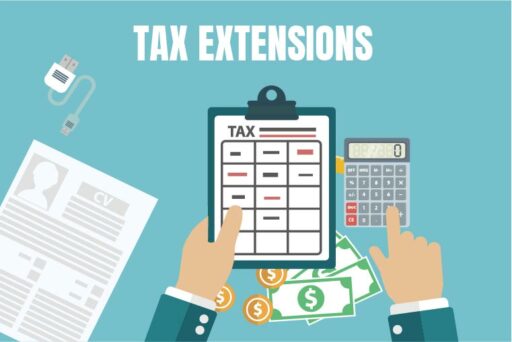Key Takeaways:
- An FBAR must be filed if there was more than $10,000 in all combined foreign taxpayer accounts at any point during the tax year.
- An FBAR is separate from the federal income tax return and is not filed with the Internal Revenue Service (IRS).
- The FBAR deadline is currently automatically extended to October 15, 2023.
- There are amnesty programs available for taxpayers who have failed to file their FBAR.
- There is nothing to lose when filing the FBAR, but not filing can result in severe penalties and in rare cases, imprisonment.
What is an FBAR and why is it important?
The FBAR (also known as FinCEN 114), is a form filed annually with the U.S. Treasury Department. It reports financial accounts outside the U.S. with the purpose of preventing U.S. taxpayers from evading their taxes by hiding their wealth overseas.
Taxpayers who file this form are not taxed on the balance of the accounts, but inform the IRS of money they have outside of the U.S.
Failure to file this form or ignoring the requirement can subject taxpayers to penalties and legal consequences. The U.S. government has become more keen at investigating and prosecuting non-compliant taxpayers, hence the importance of awareness and compliance of this reporting requirement.
Who has to file?
It has been a requirement to file an FBAR since the 1970s, but the threshold was not adjusted, resulting in more people being subject to filing.
U.S. persons who have significant interest in or signature authority over a foreign financial account must file an FBAR if the cumulative balance of all their foreign accounts is more than $10,000 at any point during the tax year. This is true regardless of whether you live in or out of the U.S. The reporting requirement can be triggered even if the balance only hits the threshold for a short period of time- even just for a day or a few seconds (yes, it’s that sensitive).
Financial interest is based on who owns the record or title, and signature authority is one’s control over the disposition of assets by communicating directly with the institution.
U.S. Persons include:
- Resident aliens
- Trusts
- Estates
- Domestic entities
Foreign countries includes any area outside of the U.S. or outside of these U.S. territories and possessions: Northern Mariana Islands, District of Columbia (Washington, D.C.), American Samoa, Guam, Puerto Rico, U.S. Virgin Islands, Trust Territories of the Pacific Islands and Native American lands, as defined in the Indian Gaming Regulatory Act
When is FBAR due?
The FBAR is due on the same date as the taxpayer’s income tax return, usually on April 15th. There is currently an automatic extension to October 15th if the taxpayer fails to meet the deadline. There is no need to file for an extension for this.
It’s also important to note that the extended tax deadline for 2022 returns (filed in 2023) is October 16, 2023. However, the extended deadline for the FBAR is officially October 15th.
Where is FBAR filed?
The FBAR is filed electronically via FinCEN’s BSA E-Filing System. It is not filed with the federal tax return. If the taxpayer wishes to paper-file, they must request an exemption from e-filing by calling FinCEN’s Resource Center.
Why should I file an FBAR? What can happen if I don’t?
The FBAR is regulated by the U.S. Financial Crimes Enforcement Network (FinCEN). They are very keen on catching tax evaders and the penalties are severe. The FBAR is more of an informational form and nothing will be taxed on what’s reported in it, so there aren’t really any disadvantages to filing it. Not filing, however, costs a lot even if you didn’t know you were required to file.
Penalties for willful failure to file – if a taxpayer purposely does not file an FBAR despite knowing they must (also including knowingly filing a fraudulent FBAR), the standard penalty for willful failure is $100,000 or 50% of the account’s balance when the violation was made- for each year the FBAR wasn’t filed, whichever is higher. In some cases, this can also lead to imprisonment.
Penalties for non-willful failure to file – if a taxpayer fails to form an FBAR due to not knowing their requirement to do so, the standard penalty is $10,000 per account for each year FBAR wasn’t filed.
If a person learns that they should have filed an FBAR for a previous year, they should electronically file the late FBAR as soon as possible. There are also amnesty programs letting taxpayers comply with the law without having to pay penalties:
Streamlined Compliance Procedures – for those who failed to file their annual income tax return and any FBARs. They must:
- Certify that failure to file was unwillful;
- File the last three delinquent income tax returns and pay any taxes due; and
- File an FBAR for the previous six years.
Delinquent FBAR Submission Procedures – for those up to date on their income tax return but not on their FBAR. They must:
- Certify that failure to file was unwillful; and
- File all delinquent FBARs.
Where can I find the updated FBAR form and instructions?
Here is the most recent revision of the FBAR. Check the following resources for additional information:
How is the FBAR filed/prepared?
Once all required account information is gathered, it can be entered into the online system. The FBAR is not sent to the IRS, but to the Department of Treasury. This is e-filed through the BSA e-filing system.
What information is required to complete the FBAR?
Aside from foreign account balances, the following must also be reported:
- Foreign stock or securities held in a financial account at a foreign financial institution (report only the accounts and not their contents)
- Financial account held at a U.S. bank’s foreign branch
- Foreign mutual funds
- Foreign-issued life insurance or annuity contract with a cash value
Submitted forms must contain the following information:
- The maximum value (in USD) of each account during the tax year
- The name on the account/s
- The number/other designation of the account
- The type of account
- The name and address of the institution/other person with whom the account is maintained
It is a good idea to maintain a record of this information should the taxpayer have to file the FBAR again the following year.
How are joint foreign bank accounts reported?
A third-party can also prepare the FBAR for a taxpayer (i.e., a certified tax professional), but they must complete and keep a record of FinCEN Form 114a, Record of Authorization to Electronically File FBARs, for the third-party to be authorized. The FinCEN Form 114a doesn’t need to be filed, but must be held in case the IRS requests it.
If the taxpayer is married with a joint account, the spouse should sign FinCEN Form 114a to allow them to file the FBAR on their behalf. If the spouse has other accounts which the taxpayer is not on (i.e., individual foreign financial accounts), they must file their FBAR separately. When filing separately, they must both include their joint accounts on each of their individual forms.
You may refer to this video for a step-by-step guide on how to prepare an FBAR.
What are common mistakes when filing an FBAR?
- Not reporting a foreign account with less than $10,000 balance.
This must still be reported because the combined highest value of all foreign accounts in any period within the tax year shall be considered for determining if an FBAR is required. - Nominees not reporting a foreign account.
Nominees must still report the account even if they don’t own it if it meets the threshold. - Filing an extension for federal income tax extends the FBAR filing deadline.
An FBAR is filed separately from the tax return and its own deadline must be observed when filing.
What are other important considerations in filing an FBAR?
If the IRS doesn’t qualify for amnesty programs, they may still prove reasonable cause for failure to file an FBAR. Some foreign financial accounts maintained by the government or international financial institutions are not required to report them on an FBAR. Foreign financial accounts containing stock and securities must be reported, but their contents do notneed to be reported separately.
Need help with filing your FBAR? We’re here for you!
Preparing this form with the proper knowhow can take approximately 10-15 minutes if all required information is available. Despite the short period of time it takes to complete the FBAR, it’s best to have a licensed tax professional help you complete it if you’re not sure how to, considering the severe penalties you may incur. If filing the form is required for your company, we’re here to from incurring monetary and criminal penalties.
Cleer can help! We offer Federal Income tax preparation which includes your state tax as well, and FBAR form for a small additional fee. We also offer all-inclusive monthly accounting packages that includes monthly statements plus your Federal and state tax returns.
CLEER offers consultations to discuss the best structure and tax savings for your startup business.
We also offer a new company package that includes a tax consultation, and bookkeeping and chart of accounts set up to help you do it right from the start.






